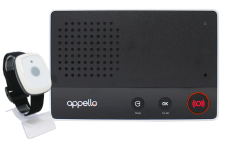It has been reported by the BBC that a considerable number of elderly people don’t make a complaint if they are unhappy with their medical care. This could be due to fears about their future medical treatment or uncertainty about how to make a complaint.
A report suggests that 56% of people over the age of 65 who have experienced a problem didn’t complain because they were worried that it could impact their future treatment. Nearly 20% of the elderly people did not know how to raise a complaint. A third of people felt that complaining wouldn’t make a difference.
By choosing not to complain or not knowing how to raise a complaint, the services that may have been issued to be resolved won’t be improved for others. The research carried out surveyed 700 elderly people, over the age of 65, alongside case studies and focus groups.
‘Proactive approach’ recommended
One carer pointed out the difficulty for elderly people to make a complaint. From struggling with technology to being unable to get out to make the complaint,
“They are referred to a computer which they don’t have; they are referred to a library which is too far away to get to… (and) they wouldn’t know what to do anyway”
The report also highlighted that it is the responsibility of the NHS to inform patients and users of their services. As well as how to complain if they have a problem. They should also ensure it’s clear that any complaint about the service will not have repercussions.
There have been suggestions that an independent body should manage the complaints. This would be to ensure elderly people come forward with their feedback without concern of repercussion.
How the Elderly can make a complaint
If you, a loved one, or someone you care for would like to make a complaint you can read information from the NHS. You can show these tips to the user of the service if they don’t know how to complain, and take them through it.
Before you make your complaint consider the points you want to make to get your argument across.
Note: we updated this post in August 2021 to reflect the latest information.
Choose Your Personal Alarm
To help you choose, start by selecting where you would use your personal alarm. In home only or at home and on the go.












